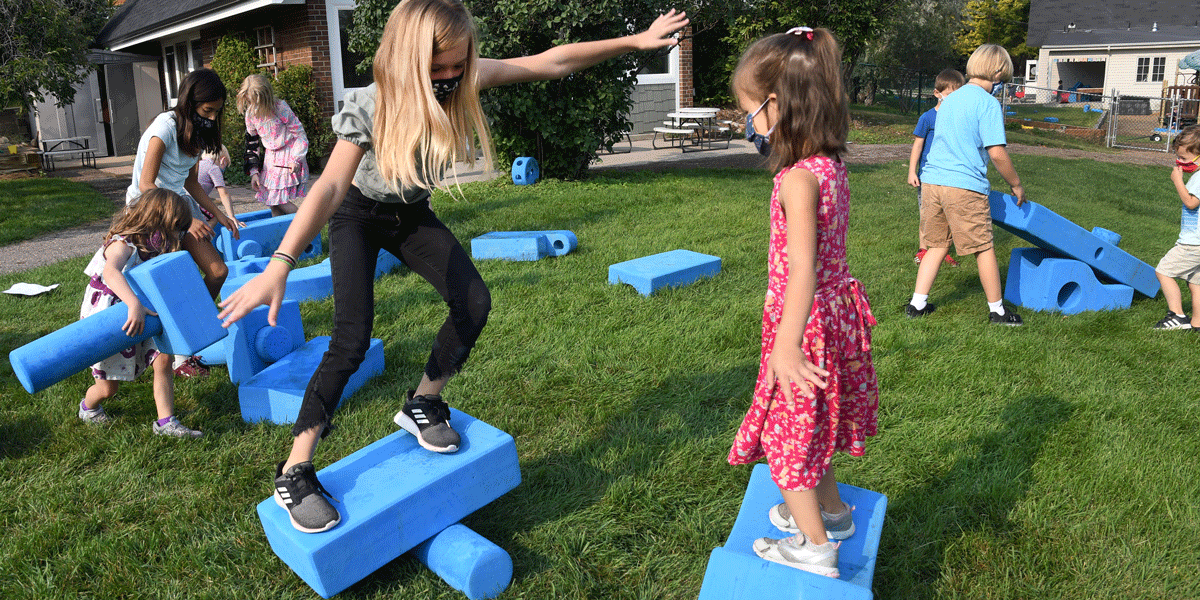I think it is safe to say that all parents and educators want children to develop a healthy self-esteem that allows them to feel competent as they navigate life at any age and in a variety of circumstances. During the pandemic, I have been increasingly focused on the development of self-esteem for young children at Colorado Academy’s Lower School and have reviewed several resources that have shared ideas of “what to do,” as well as “what not to do,” in providing children with feedback.
Words matter—what we say to children as they try new things or tackle obstacles has a direct impact on the development of their self-esteem. During activities within the Lower School, teachers strive to focus on the learning process, as well as the effort demonstrated by the child, instead of solely focusing on the final product or outcome.
As teachers provide feedback to students, they shift the intent of their messaging to communicate an emphasis about the learning process and the child’s effort during a lesson or activity. Teachers may offer these kinds of comments to students:
- You never gave up, even when it was hard for you. You demonstrated a great deal of tenacity.
- What did you learn from that? What was easy? What was difficult? What would you do differently?
- You are such a hard worker. You really improved on ______. What motivated you to work so hard on that project?
- What a creative way to solve a problem! Can you share more about your thinking?
- I love how you took ownership of that! How does that feel?
- You remembered to ______ —great thinking! How did you remember to do that?
These comments are very different from “Good job!”; “You are the best!”; “Way to go!”; “You are so smart!” Comments like this do not really convey a message that provides a child with meaningful feedback that can be used for growth in future situations.
The development of a child’s self-esteem is an ongoing process that takes time and intentionality from all the adults in their lives. At home, consider the feedback that you hear other people offer to your child, as well as what you typically provide to your child. Try to frame the messaging around process and effort and see how it impacts your child.
And then remember to conduct check-ins with your children to see how they are feeling about themselves within the family, at school academically and socially, and in extracurricular activities. You may discover that children feel they are “the best” without ever hearing those words from you.
